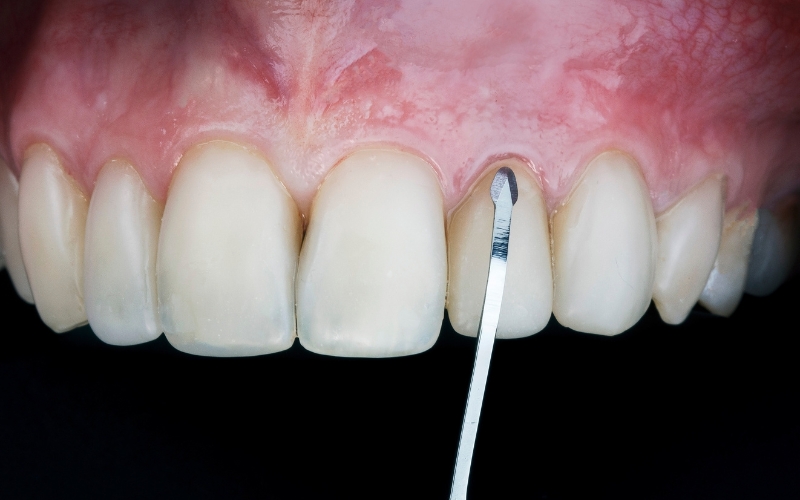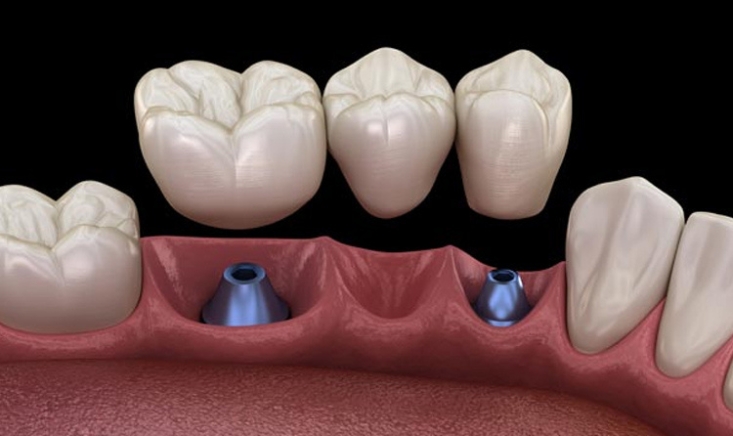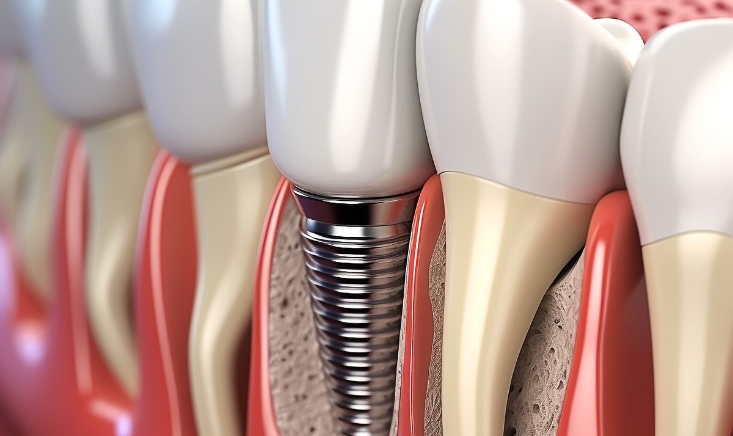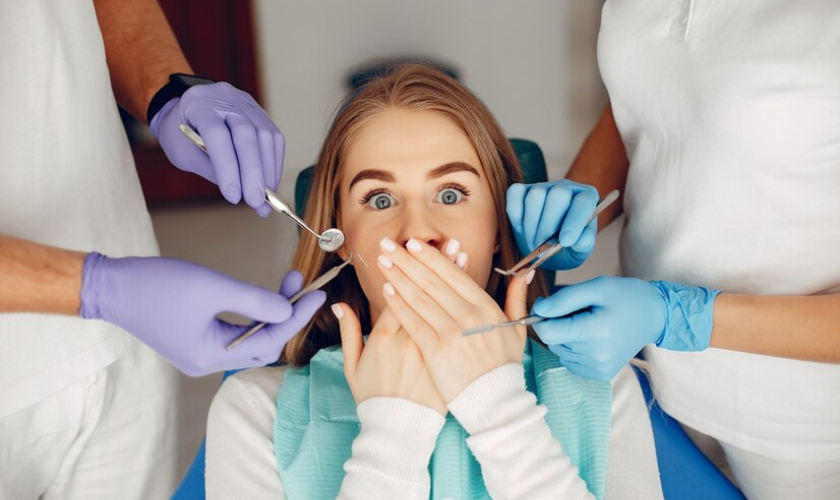2200 AW Grimes Blvd, Suite 100 Round Rock, TX 78665
Do Gums Grow Back After Implants?

Healthy gums are the foundation of a strong, vibrant smile. They support teeth and dental implants and are essential to oral health. Implant dentistry is a common method of replacing lost teeth. However, many wonder if gums grow back after implants, especially if they start to recede.
This blog will delve into this important question. It explores what dental implants are, how they interact with gum tissue, and what you can do to protect your gums after receiving an implant. You may prolong the life of your implants and take better care of your oral health by being aware of these variables.
Understanding Dental Implants
What Are Dental Implants?
Artificial tooth roots, or dental implants, are usually constructed of titanium. These implants are surgically placed into the jawbone, where they bond with the bone over time, a process called osseointegration.
An implant becomes a functional and aesthetically pleasing tooth replacement when a crown is affixed to it. Implants are designed to mimic the look and function of natural teeth, making them an excellent long-term solution for missing teeth.
The Role of Gums in Dental Implant Success
Healthy gums are vital for the success and longevity of dental implants. The gums help to hold the implants in place and protect the underlying bone from bacteria and plaque buildup.
Inadequate gum health can lead to complications, such as infections or gum recession, which may jeopardize the implant’s stability. Proper care and maintenance of your gums are therefore essential to ensure that your dental implants last as long as possible.
Can Gums Grow Back After Implants?
The Nature of Gum Tissue
Unlike bone, gum tissue does not naturally regenerate after significant loss. Once the gum tissue recedes, it typically does not grow back on its own. This means that if you experience gum recession around your implants, the lost tissue will not return naturally. For that, maintaining gum health is so critical after receiving implants.
Factors Influencing Gum Health Post-Implant
While gums may not regenerate, several factors can help maintain or improve gum health around implants. Proper oral care, including brushing, flossing, and using an antimicrobial mouthwash, is essential. Frequent dental checkups let your dentist keep an eye on the condition of your gums and catch any problems early.
Managing underlying conditions, such as diabetes or gum disease, is also important, as these can negatively affect gum health. Quitting smoking, eating a balanced diet, and avoiding excessive alcohol can further promote healthy gums and protect your implants.
Treatment Options for Receding Gums Around Implants
Gum Grafting
Gum grafting is a surgical procedure to restore lost gum tissue. During the procedure, tissue is taken from another part of your mouth, usually the palate, and grafted onto the affected area.
This can cover exposed implant surfaces, protect them from bacteria, and improve the aesthetic appearance of your gums. Gum grafting is often recommended when a significant recession occurs around implants.
Soft Tissue Augmentation
In addition to gum grafting, other techniques, like soft tissue augmentation, can enhance the gum line around implants. This procedure involves adding tissue to the gums to thicken and strengthen them.
Soft tissue augmentation is less invasive than gum grafting and can be an effective way to improve gum health and appearance around implants.
Preventive Care and Maintenance
Preventing further gum recession is crucial after receiving implants. Proper oral hygiene is the first line of defense, including gentle brushing with a soft-bristled toothbrush and flossing daily.
For the purpose of tracking gum health and identifying any early indicators of recession, routine dental examinations are crucial. Gum health can also be supported by a well-balanced diet high in vitamins and minerals, especially calcium and vitamin C.
Avoiding smoking and managing stress are other important factors in maintaining healthy gums.
Preventing Gum Issues After Implants
Proper Oral Hygiene
Once implants are placed, gum disease can be avoided by practicing good oral hygiene. You should floss every day to get rid of plaque between your teeth and implants and clean your teeth twice a day using a toothbrush with soft bristles.
Gum recession may be avoided by using an antibacterial mouthwash to lessen germs and stop infections.
Regular Dental Check-ups
Getting regular dental checkups is essential for keeping an eye on the condition of your implants and gums. During these visits, your dentist can clean areas that are difficult to reach at home, assess the condition of your gums, and address any early signs of recession.
These check-ups help ensure your implants remain secure and your gums stay healthy.
Healthy Lifestyle Choices
Your lifestyle choices can significantly impact your gum health. Eating a diet rich in fruits, vegetables, and lean proteins will help your gums and overall oral health.
It is especially crucial to abstain from smoking since it can lower blood flow to the gums, increasing their vulnerability to recession. Additionally, managing stress and staying hydrated are simple yet effective ways to promote healthy gums.
The lifetime and efficacy of dental implants depend on healthy gums. While gums do not grow back after a significant recession, there are steps you can take to protect and maintain your gum health. Gum grafting and soft tissue augmentation can help restore the gum line around implants.
Meanwhile, practicing proper oral hygiene, attending regular dental check-ups, and making healthy lifestyle choices are vital for preventing further gum issues. Always see your dentist for tailored guidance and routine examinations to guarantee that your gums and implants stay healthy for many years to come.




